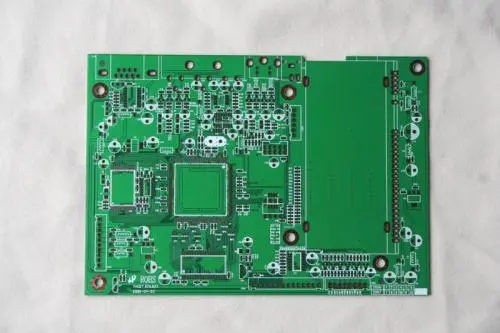What is the function of serpentine traces? Why do we need serpentine traces? Which types of signal lines need serpentine traces? If you want to perform serpentine wiring, what rules need to be met and what issues should be paid attention to? Let's explain the PCB design for everyone. The role of serpentine routing in the middle.

1. Inductance
It depends on the situation. For example, the snake line on the PCI board is to meet the line length requirements of the PCI 33MHzClock.
Regarding the serpentine traces, because of different applications, they have different functions. If the serpentine traces appear in the computer board, it mainly acts as a filter inductance to improve the anti-interference ability of the circuit. If it is in a normal PCB board In addition to the filter inductor, it can also be used as an inductance coil for a radio antenna, etc.
The serpentine traces in the computer motherboard are mainly used in some clock signals, such as PCIClk, AGPClk, and it has two functions: 1. Impedance matching 2. Filtering inductance. For some important signals, such as the HUBLink in the INTEL HUB architecture, there are 13 in total, running at 233MHz. The length must be strictly equal to eliminate the hidden dangers caused by time lag. Winding is the only solution. Generally speaking, the line spacing of serpentine traces is >=2 times the line width. Equal-length wiring, especially data lines in high-frequency PCB.
2. Is there a formula or empirical value for calculating the inductance of the serpentine line?
Specctra can be programmed to set the impedance matching rules of the network wiring and the wiring rules of the differential line, and some general design principles are explained in the help, which sometimes doubles as a resistance. It is actually a distributed parameter LC filter. Filtering contours.
Three, horizontal distribution parameters
The equal line length of the high-speed digital PCB board is to keep the delay difference of each signal within a range to ensure the validity of the data read by the system in the same cycle (when the delay difference exceeds one clock cycle, the next cycle will be read incorrectly. Data), generally requires that the delay difference does not exceed 1/4 clock cycle, the line delay difference per unit length is also fixed, the delay is related to the line width, line length, copper thickness, and layer structure, but the line length will increase the distributed capacitance And distributed inductance, so that the signal quality, so the clock IC pins are generally connected to RC termination, but the serpentine trace does not play the role of inductance, on the contrary, the inductance will make the higher harmonic phase shift in the rising element of the signal., Causing the signal quality to deteriorate, so the serpentine line spacing is required to be at least twice the line width.The smaller the signal rise time, the more susceptible to the distributed capacitance and distributed inductance.
What problems should be paid attention to when snakes walk on the line? If you don't go well, will the anti-interference ability of the PCB boardnot get better, but it will have a deteriorating effect?
Simply put, any trace on the PCB will cause a time delay to the signal when it passes a high-frequency signal. The main function of the serpentine trace is to compensate for the smaller delay in the "same group of related" signal lines. Part, these parts are usually not or less than other signals through additional logic processing; the most typical is the clock line, usually it does not need to go through any other logic processing, so its delay will be less than other related signals.
In microwave circuits, most of the meandering lines are to reduce the area of the PCB! --Because the cable length is strictly limited.
The serpentine trace of equal line length does not have any anti-interference function. Its function is to control the delay of the bus or clock line with timing requirements within the required range. As for the requirements, it can be obtained from DATASHEET if it does not count. Generally, data matching the line length will be given if there is a timing requirement; the 3W rule is generally followed when routing (the spacing of the winding should be twice the line width), which can eliminate 78% of the mutual inductance between the lines and minimize the change due to inductance The resulting impedance is discontinuous.
In the motherboard, the serpentine traces are basically equal in length, not only HUBLINK, CPUCLK, PCICLK; IDE, DIMM also need to be routed, and the wiring distance depends on the wiring distance, which can be 1:2, 1:3, 1: 4--
It is used as an inductor in a 2.4G walkie-talkie, but I don’t know how to calculate the inductance. I don’t know if the heroes have experience in this area.
Serpentine traces are mostly used to achieve length matching between buses or to reduce wiring area. From the perspective of electromagnetic interference, it is disadvantageous. It increases the loop area. Considering inter-line interference, it is often impossible to reduce the wiring area. the goal of. Short and narrow serpentine traces can be used as fuses.